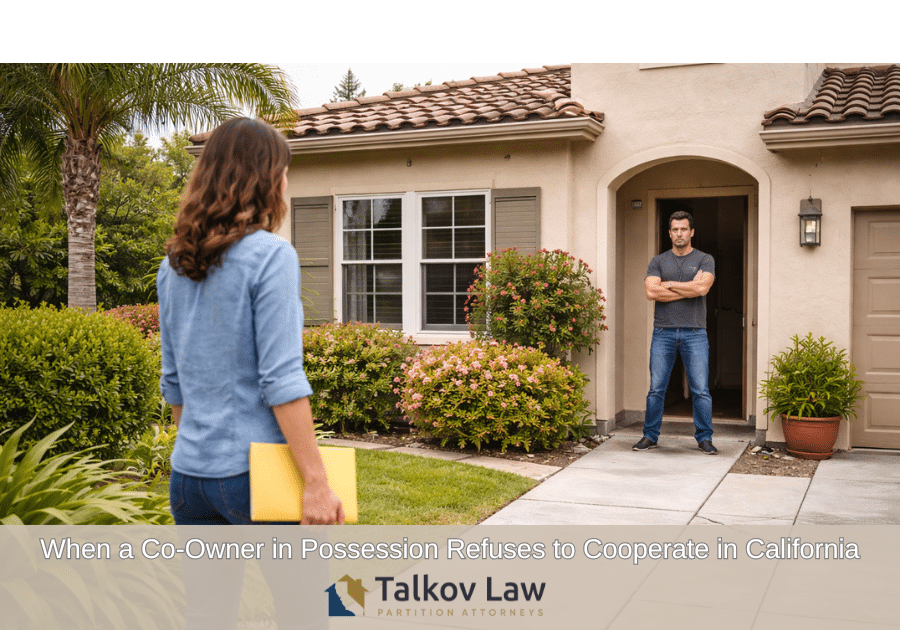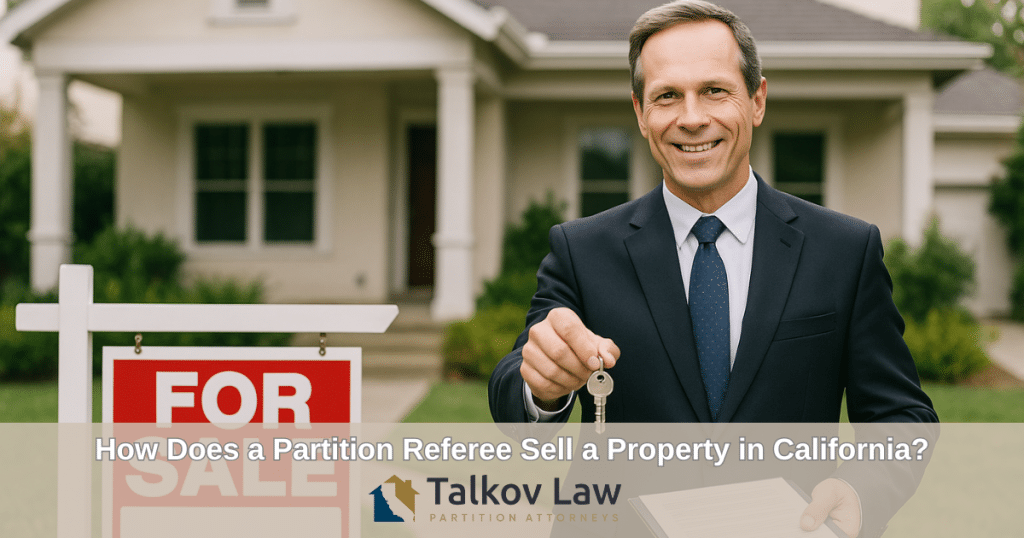Understanding Co-Ownership in San Bernardino County
Our team of partition attorneys in San Bernardino can assist co-owners with frequently asked questions about partitions, such as:
- Who pays for a partition action? In California, each party typically pays for their own attorney’s fees (known as the “American Rule”). However, California partition law allows for an exception to this rule, stating that “the court shall apportion the costs of partition among the parties in proportion to their interests or make such other apportionment as may be equitable.” California Code of Civil Procedure 874.040. Indeed, the court may award “reasonable attorney’s fees incurred or paid by a party for the common benefit.” California Code of Civil Procedure 874.010(a).
- Are there methods to resolve a partition situation without a court-ordered sale? The vast majority of partitions are solved without a court-ordered sale. Many times, the defendant will buy out the plaintiff’s interest. Other times, the parties will agree to a voluntary sale on the open market. However, the filing of the partition action is generally what forces the defendant to see the wisdom of settlement. Under California’s Partition of Real Property Act, a defendant can buy out the interest of the plaintiff at an appraised value, meaning that a court-ordered sale is only likely occur where the defendant simply can’t afford to buy the property but still won’t agree to sell.
- Can we negotiate a settlement instead of going through a partition action? We find that the best solution is to file the partition action, then negotiate a settlement. Defendants often reach a more reasonable settlement when they are being advised by a partition attorney who will explain that the plaintiff is very likely to obtain the sale of the property.
- Can heirs force the sale of property? Heirs can force the sale of real property in California once that property is distributed to them. However, sometimes, the property is still held in a trust where the trustee will sell the property. When there is no trust, the probate court may decide that the probate administrator will sell the property before it is distributed in fractional interests to the heirs.
- What are the different types of partition in California? Almost all partition actions are partition by sale, though partition in-kind allows the property to be divided, while a partition by appraisal allows the purchase by one-co-owner at an appraised value.

Our Fontana Partition Attorneys Know San Bernardino County
Fontana is a city located in San Bernardino County, California. It is situated at the foothills of the San Gabriel Mountains and is part of the Greater Los Angeles Area. The city is the second-largest city in the county. Fontana is known for its diverse population, its thriving economy, and its many recreational activities. The city is home to several major employers, including Kaiser Permanente, Amazon, and UPS. Fontana is also home to the Auto Club Speedway, a NASCAR racetrack, and the Fontana Days Festival, an annual celebration of the city’s history and culture. Fontana is a great place to live, work, and play.
Fontana was founded in 1913 by Azariel Blanchard Miller, who named the city after his wife, Fontana. The city was incorporated in 1952 and has since grown to become the 10th largest city in San Bernardino County. Fontana is home to the Auto Club Speedway, which hosts NASCAR and IndyCar races, and the Fontana Days Half Marathon. The city is also home to the Kaiser Steel Mill, which was once the largest steel mill in the West. Fontana is also home to the Fontana Unified School District, which serves over 40,000 students.
Carpenter v. Dexter – Partition Action Case Study
In the legal case of Carpenter v. Dexter, 75 U.S. 513 (1869), the issue was whether a partition of land could be made without the consent of all the owners. The case involved a dispute between two brothers, William and John Carpenter, over the ownership of a tract of land in Michigan. William had purchased the land from the government in 1836, but John had since acquired an interest in the land. The brothers disagreed over how the land should be divided, and William sought to partition the land without John’s consent. The Supreme Court held that a partition of land could not be made without the consent of all the owners, and that John had a right to his share of the land. The Court also held that the partition should be made in accordance with the laws of Michigan.
Contact an Experienced Partition Attorney in Fontana, California
If you want to end your co-ownership relationship, but your co-owner refuses, a partition action is your only option. Our experienced partition lawyers serving Fontana have years of experience ending co-ownership disputes in California and can help you unlock the equity in your San Bernardino County property. For a free, 15-minute consultation with an experienced partition attorney at Partition Lawyer California, call (951) 888-3300 or fill out a contact form online.
Contact us Today for a Free Consultation with a Partition Attorney in Fontana, California
Our partition attorneys in Fontana also serve Rancho Cucamonga, Ontario, Rialto, San Bernardino, Upland, Claremont, Montclair, Pomona, and Bloomington





